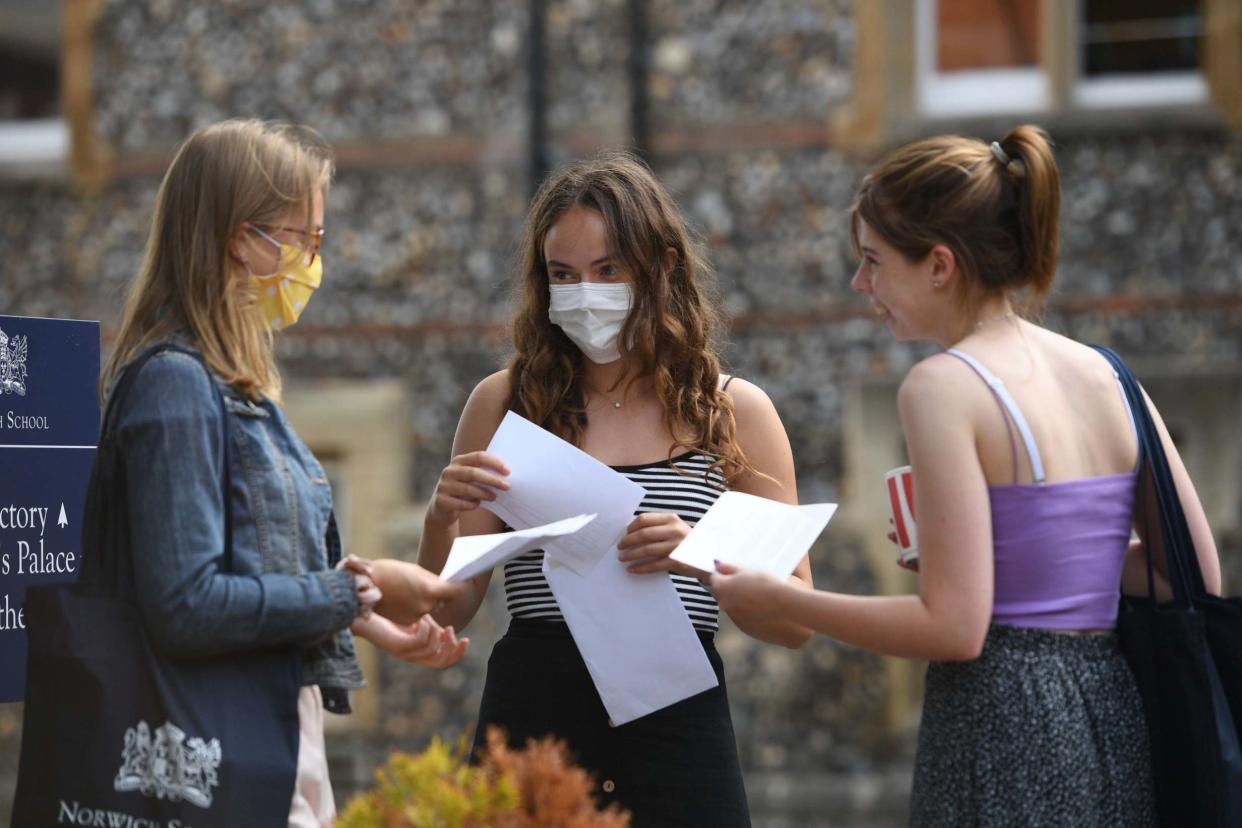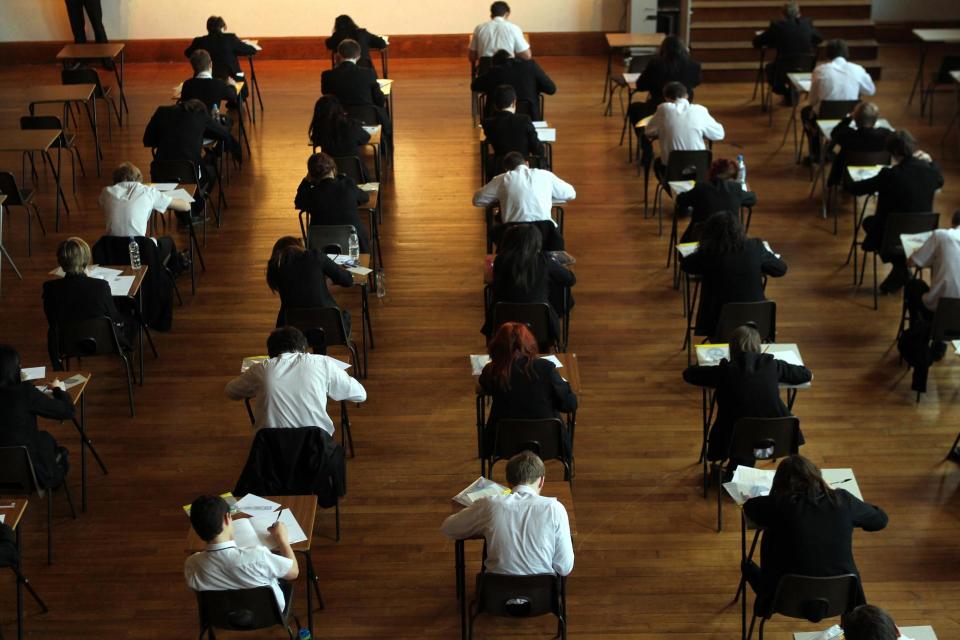A Level grading 'equality impacts' must be considered by Ofqual, EHRC says

The Equality and Human Rights Commission (EHRC) has warned the English exams regulator that it must consider the "equality impacts" of any decisions it takes concerning A-levels.
The EHRC chief executive, Rebecca Hilsenrath, said the body would consider "all our powers" to ensure groups such as ethnic minority and disabled students were treated fairly by Ofqual.
She urged the body to “mitigate against potential negative effect” on marginalised groups, saying: "The pandemic has hit the younger generation hard.
"Education has been particularly disrupted, with potentially life-changing consequences for young people, particularly ethnic minority and disabled children."
"Many of these children come from disadvantaged backgrounds. If we are going to build back better and not make things worse, it needs to start with our children's future.

"We have been clear with Ofqual that they must consider the equality impacts of all their actions and mitigate against any potential negative effect on these groups.
"We will continue to discuss this with Ofqual and consider all our powers so that ethnic minority and disabled children, for example, are treated fairly in this process."
The commission leader’s comments came as it emerged that the largest reduction in the proportion of students awarded A-level grades of C and above after moderation was recorded within those from disadvantaged backgrounds.
Ofqual leaders insisted on Thursday that there is "no evidence of systemic bias" in its moderation system, which relies on an algorithm. It has said it is "difficult to draw firm conclusions" over the relationship between deprivation and grade adjustment.
Dr Michelle Meadows, executive director for strategy, risk and research at Ofqual, said that research literature covering A-level predictions for university entrants shows that "there is a tendency to be more generous to students from lower socio-economic status".
She added: "Outcomes for different groups, whether that be by socio-economic status, ethnicity, gender, the outcomes for these groups are very similar to those in previous years.

"There is a small effect of a greater difference between the end calculated grades and the centre assessment grades."
The president of the National Union of Students (NUS) has launched a petition against the downgrading of school-leavers' A-level results, and accused the “triple lock” grading system of being "racist and classist".
The union is calling on the government to instead award students the grades predicted by their teachers, as Scottish leaders agreed to do following a backlash this week.
The petition, launched by NUS UK on Thursday morning, claims the Department for Education's system amounts to “educational inequality" and is based on a "ridiculous algorithm" which unfairly prejudices students from less advantaged backgrounds.
The NUS president, Larissa Kennedy, said: "England must follow Scotland's lead and scrap moderated grades, moving to give all students their teacher-assessed grades.
"We must look at what this will mean for individual students without such action, many of whom will miss out on opportunities to attend the university of their choice because of this process.
Congrats to those getting results today🥳
Due to a classist, racist moderation system, not everyone will receive the grades they deserve
That’s why we’ve launched this petition⤵️
Students, educators + anyone who stands against educational inequality, pls take 2 mins to sign https://t.co/SWw9oAcV7b— Larissa Kennedy (@Larissa_Ken)
"For three per cent of students to have had their results downgraded by two grades means that there will be thousands of students receiving results that are no reflection of their true ability."
The Department for Education announced its system as a "safety net" for A-level grading after this year's summer exams were cancelled due to Covid-19.
The system has seen about two in five pupils around the country receive A-level results downgraded from their teachers' predictions after the system's standardisation process, which is moderated by an algorithm. The algorithm takes into account factors including the past performance of a school.
The Government has said the aim of the system is to make sure results are broadly in line with results from previous years and to make sure the results have the same value as those from previous years. Education minister Nick Gibb has said that without the algorithm results were likely to have seen a grade inflation of 12 per cent.
Some students have dropped two or three grades below what their teacher predicted.

Exam boards downgraded 39.1 per cent of pupils' grades in England, according to data from Ofqual – which amounts to about 280,000 entries being adjusted down after moderation.
In England, a total of 35.6 per cent of grades were adjusted down by one grade, 3.3 per cent were brought down by two grades and 0.2 per cent came down by three grades, figures from Ofqual show.
In Scotland a similar system was scrapped after accusations of unfairness, and students were given the grades teachers originally predicted.
Schools will be able to lodge appeals on behalf of students in England. Appeals will be lodged either on the basis of results from mock exams, taken earlier this year before the pandemic, or exams taken in the autumn.
Schools can also lodge appeals on behalf of students if they can show that grades are lower than expected because the school has changed in some way and therefore previous cohorts are no longer representative of this year’s students.

The Association of School and College Leaders has said it was very concerned about the "volatility" in results.
General secretary Geoff Barton said he had heard "heartbreaking" accounts from schools about grades being pulled down in an "utterly unfair and unfathomable" way.
One school head said she was "quite incensed" that some students would not now be able to go to the university of their choice after results were moderated down by as much as two grades, while one London school told the Standard they would be appealing all results.
Ministers had urged universities to adopt a "flexible" approach to assessing applications, with institutions told to hold places for students pending the outcome of any appeal.
But exam boards will have less than four weeks to process appeals, with a Ucas deadline of September 7 for applicants to meet their academic offer conditions.
Read more
Delayed coronavirus contact tracing app trial 'to be unveiled'- LIVE
A level appeals 'not ready yet' as 2-in-5 have results lowered- LIVE

 Yahoo News
Yahoo News 
